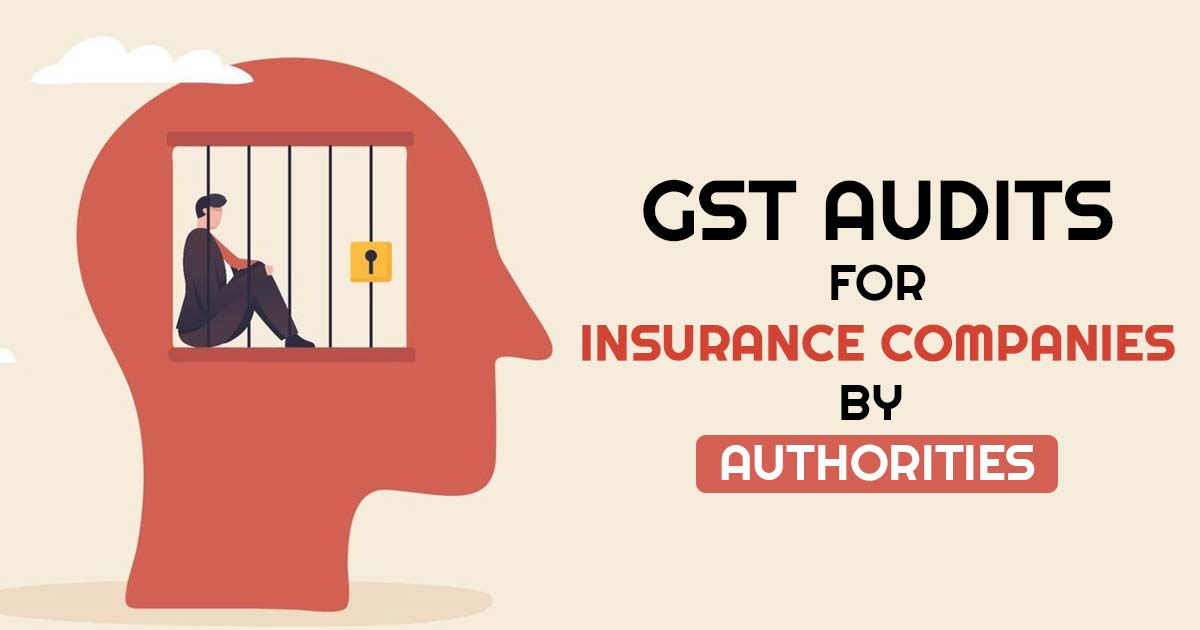
Since the plan of the tax authorities is deep dive into their business exercise to fetch the potential of a raft tax associated irregularities and thus the insurance companies might face GST audits.
On the basis of fictitious invoices created by their channel partners and intermediaries, several insurance businesses are being investigated for improperly claiming the input tax credit without the provision of goods and services at the core.
A senior official of the Central Board of Indirect Taxes and Customs (CBIC) told that that the board wants to thoroughly examine the entire business to determine whether there are any additional taxes concerns aside from commissions, which are currently being looked into.
He claimed that one element of the business is being examined in the current investigation against insurance companies. How regulatory standards are being ignored while the commission payment system is being abused? He said that audits will be carried out to comprehend corporate practices and determine whether there were any additional tax-related violations.
By examining tax returns and other records kept by firms, GST audits are often done to verify declared sales, taxes paid, refunds claimed, and input tax credits claimed. Any discrepancy in information between documents could cause trouble.
Read Also: GST Impact on Insurance Sector with Slab Rates
According to the official previously stated, during a GST audit, we frequently examine the company’s financial statements combined with the income-tax information to determine whether what they have declared corresponds with reality.
In 2022-23 momentum is been gained by the GST audit department post the businesses were provided enough time to adapt to the indirect tax regime which is incorporated in 2017. 50,000 cases were selected to be audited, in the present fiscal year (2023-24), CBIC chairman Vivek Johri spoke.
Over the past year, a protracted investigative process has been conducted in the insurance industry. It would expect that the data that has already been supplied is used for review rather than subjecting its channel partners to a thorough evaluation procedure right away.
It is important to note that 15 insurance businesses, as well as a number of their intermediaries and channel partners, are currently under investigation by the Directorate General of GST Intelligence, an investigative arm, for the use of fictitious invoices and incorrect input tax credit claims. It has so far documented all insurers’ and intermediaries’ statements, and it is getting ready to send out show-cause notifications. Some intermediaries have learned that notices have already been sent out.
According to officials, these companies conspired to inflate false invoices while passing along bogus input tax credits under the pretence of marketing services. In the continuing case, the overall amount of GST evasion has not been established. However, a quick estimate puts the calculation at much more than Rs 2,500 crore.
The Insurance Regulatory and Development Authority of India, which oversees the insurance industry, has removed the restrictions on the payment of commissions to insurance intermediaries. Players that play both life and non-life will have more freedom to give commissions as a result. However, because the policy change is not retrospective, it will have no effect on the ongoing tax investigation.
This year, the GST authorities will audit 50,000 cases. An audit of insurance companies to look for potential inconsistencies will be included in this effort. Overall business practices will be audited to confirm declared sales, taxes paid, refunds claimed, etc. 15 insurance companies are being investigated for allegedly abusing input tax credits.









